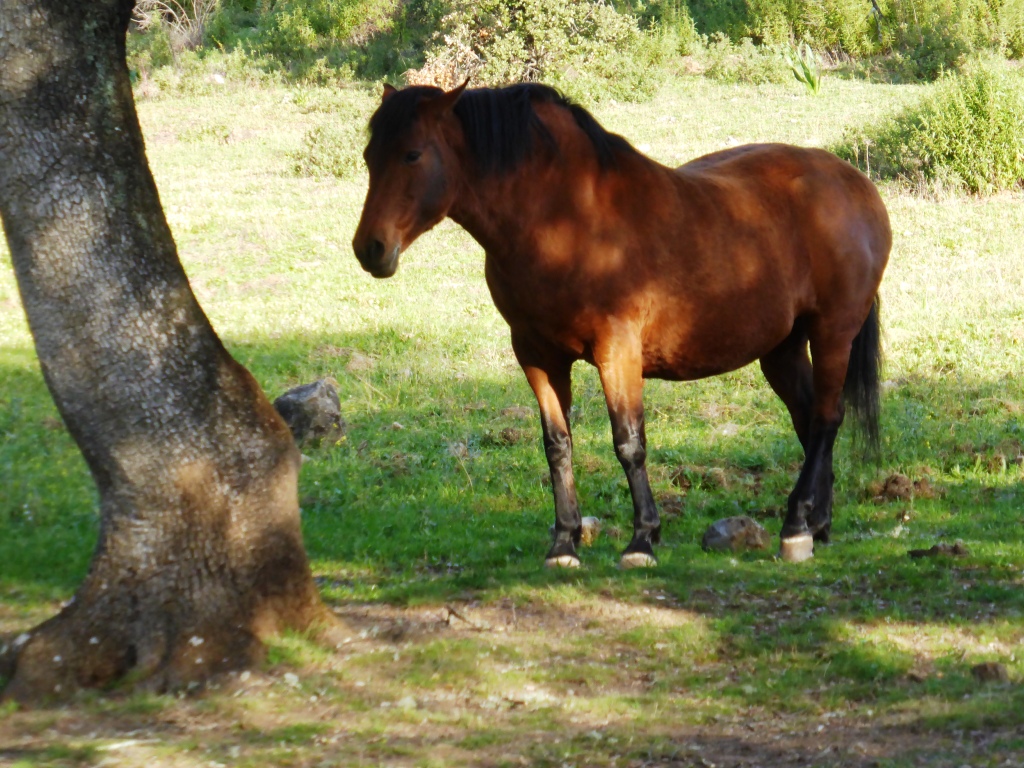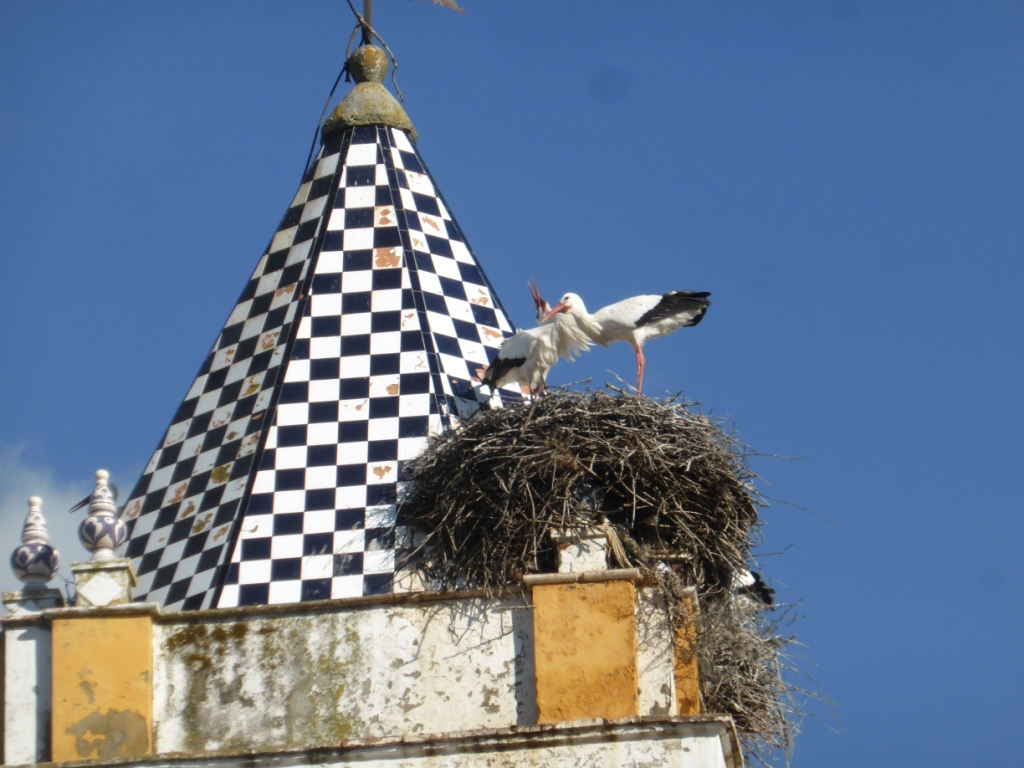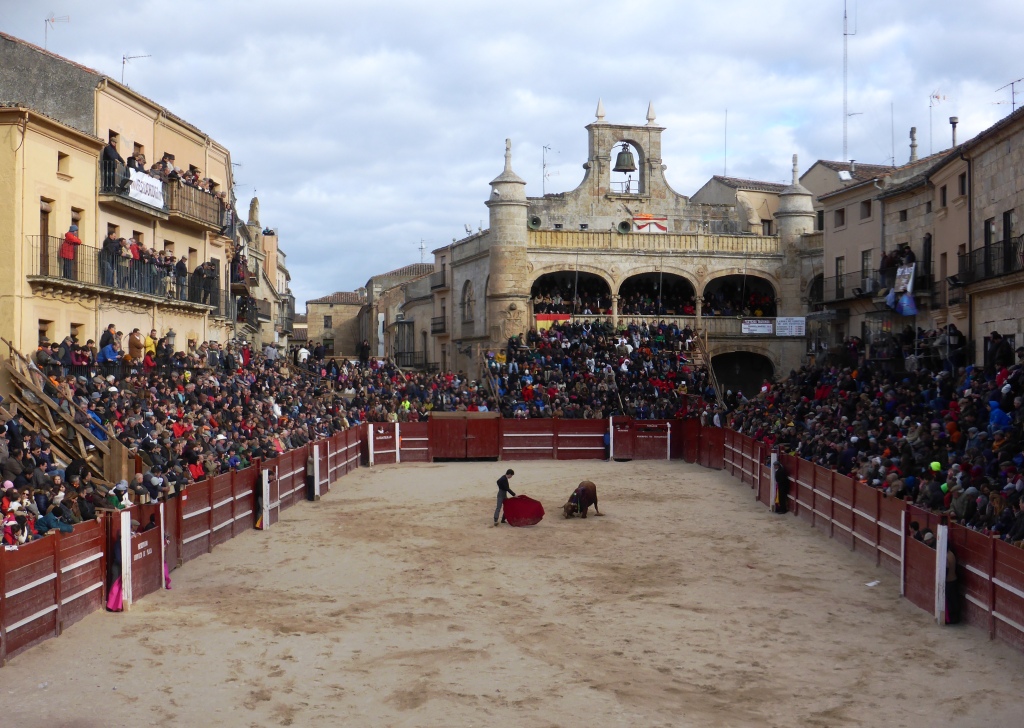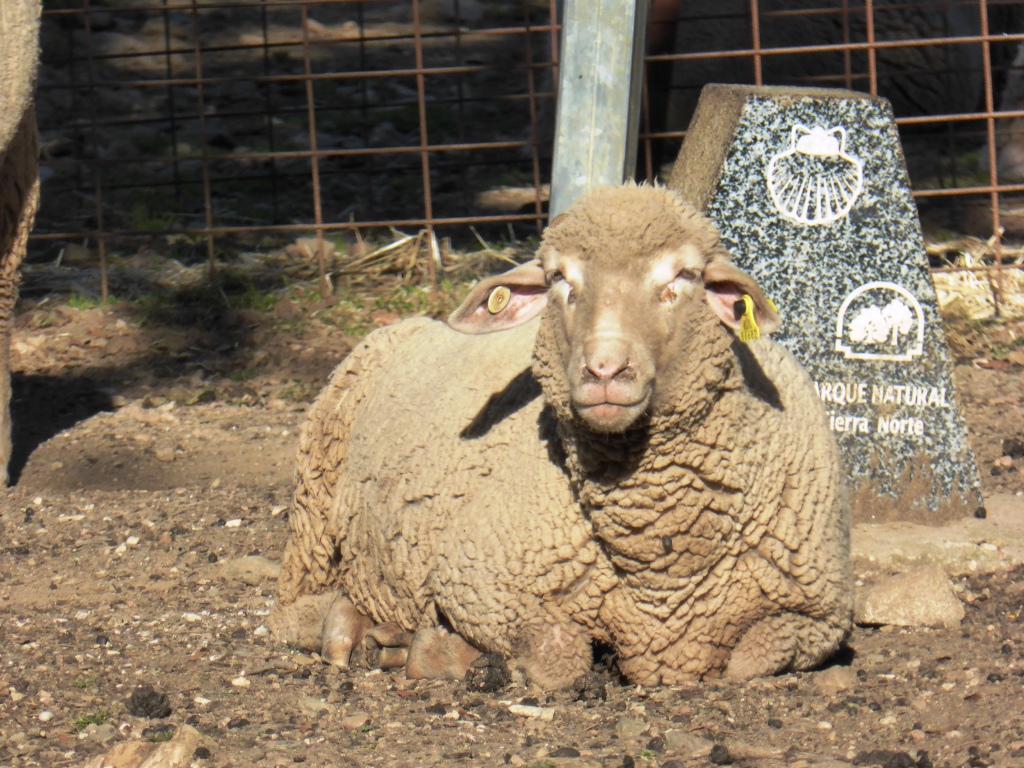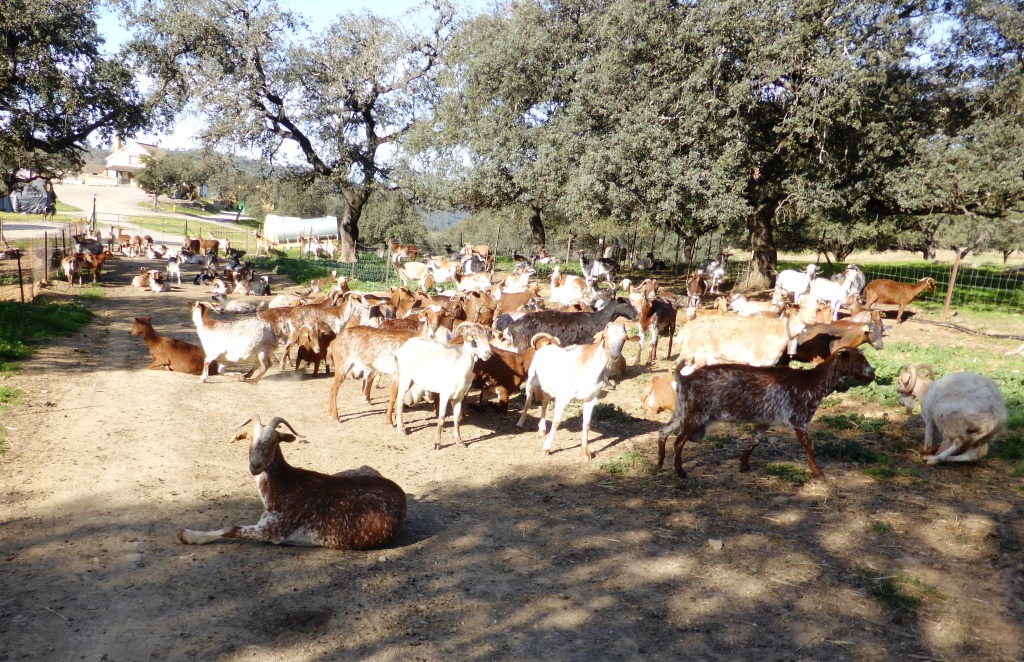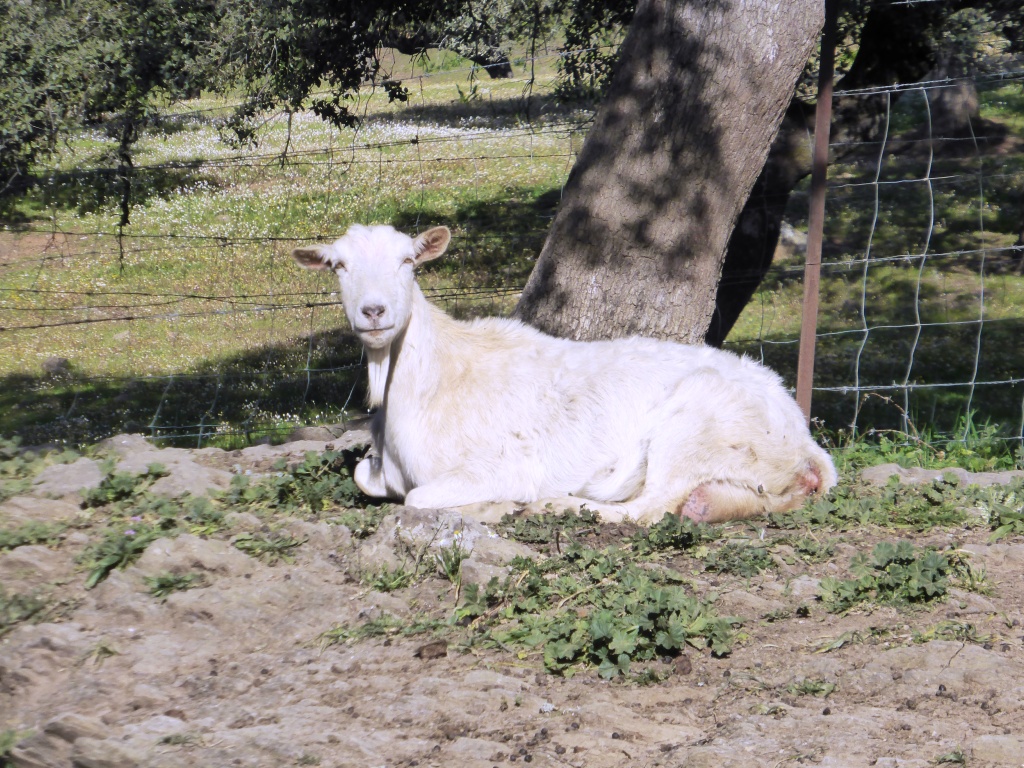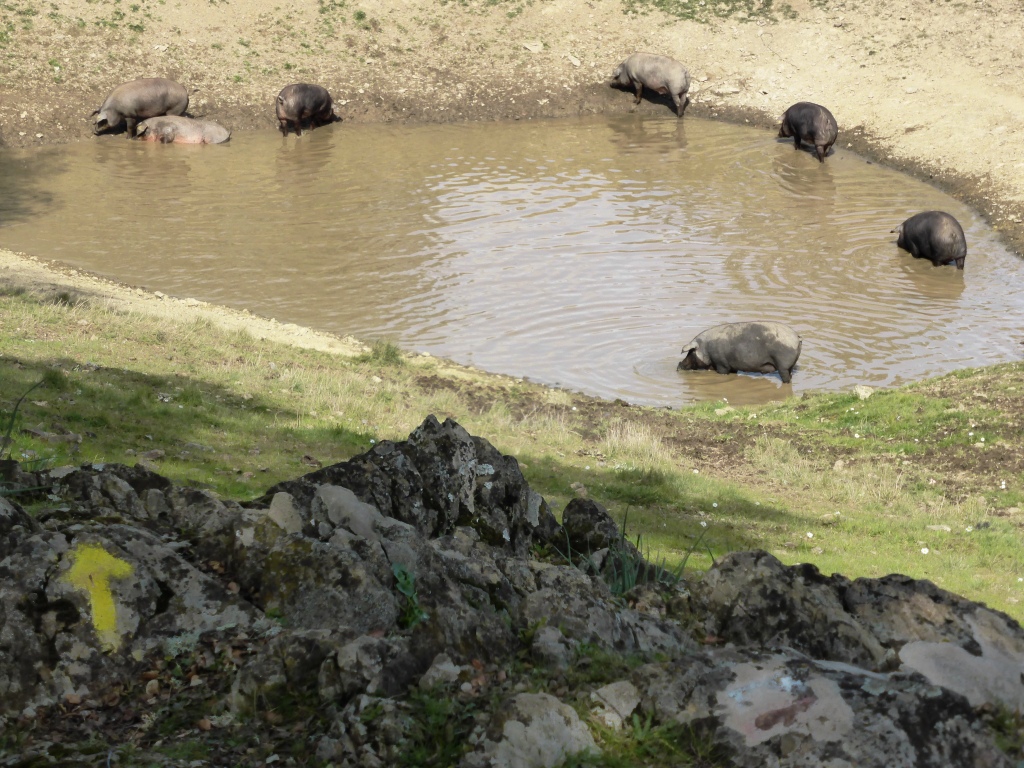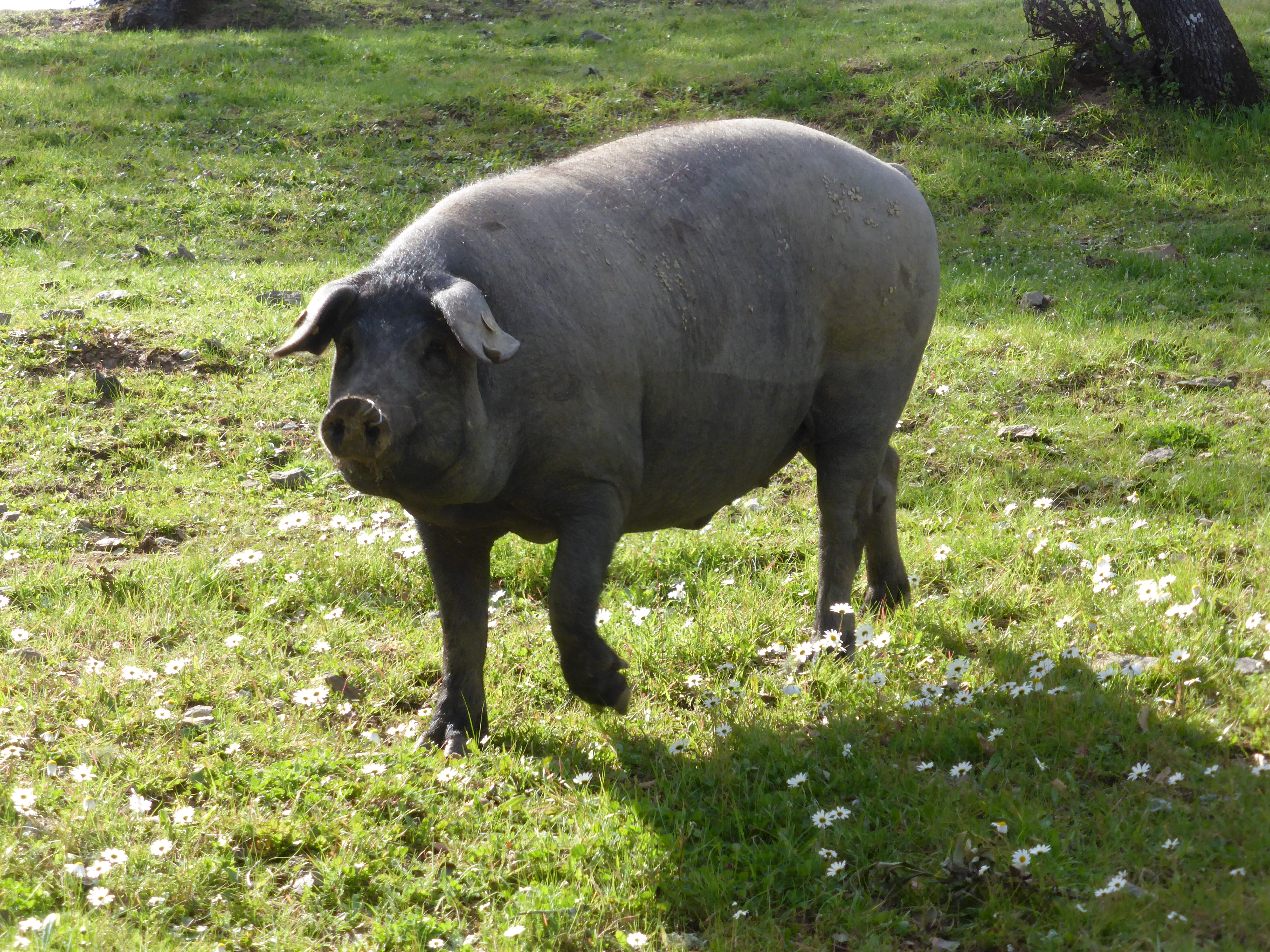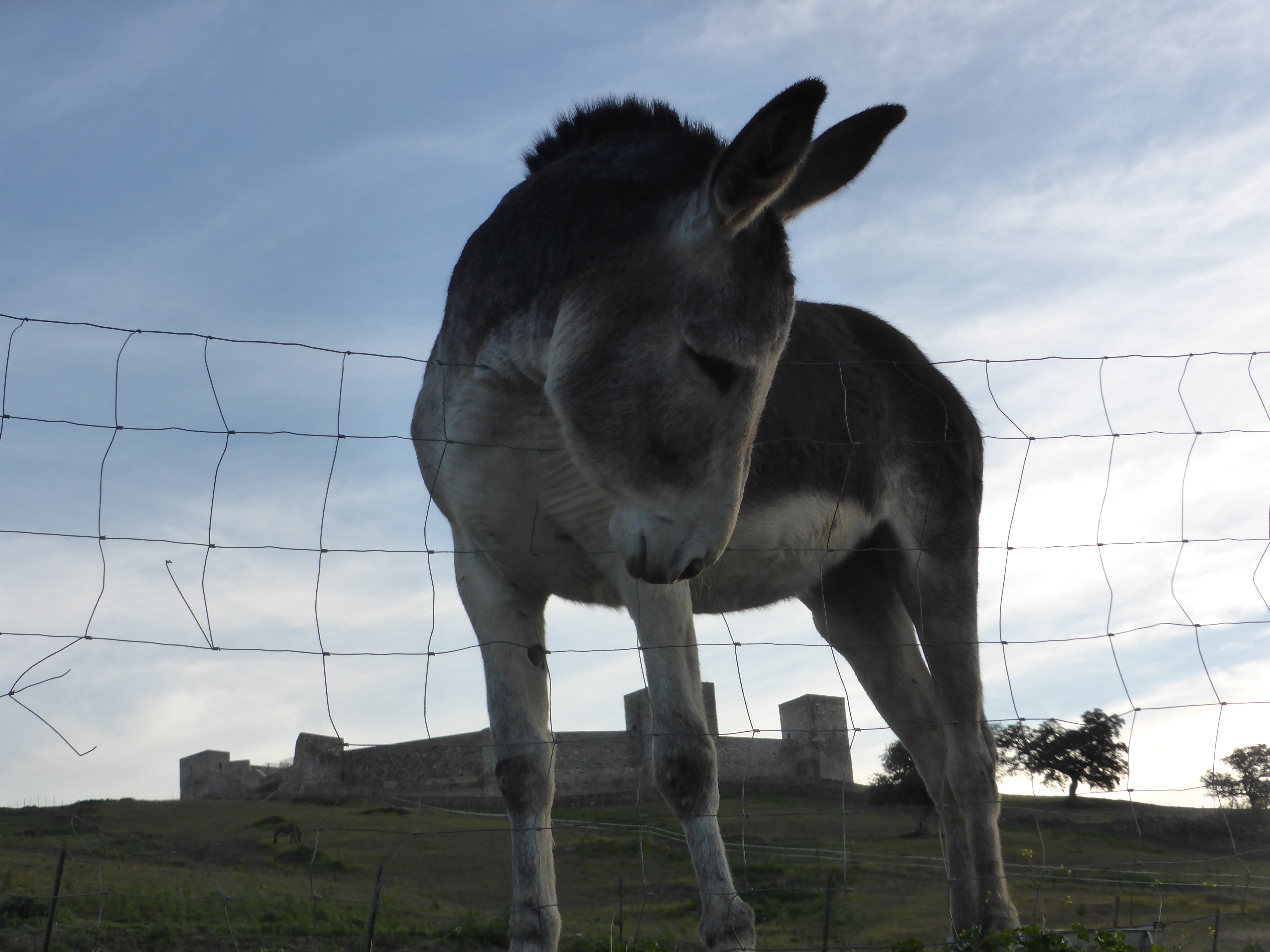Via de La Plata – a safari between Almaden de la Plata and Real de la Jara.
The walk from Almaden de La Plata to Real de La Jara is about 16 km. Many pilgrims find this too short for a day on the Camino and continue to Monesterio which is a further 20km. When I first passed here in 2010, I continued walking and suffered the worst blisters on any of my caminos. So this time I decided to take the day very slowly and stop and have conversations en route – with the animals.
The week before this Camino I had been at a fiesta in Ciudad Rodrigo, a Carnival with the day punctuated by the running of bulls and bullfights in the evening. With bullfighting I am faced with armies of contradictions and paradoxes, fifty shades of grey perhaps – in a very different context. I am not “either/or” when it comes to bullfighting: it is not, for me black or white. I loved bullfights as a child and for decades it has been the door which opens for me the reality of living with opposites, with questions without answers and faces me with my own inner contradictions. Death is out in the open. I have slaughtered animals myself when I kept goats, holding them in my arms as their life drained away with their blood. Who knows what happens at that moment when the life within leaves only corpse? Meat-eating man is a killer of animals. When bullfighting ceases, as it surely will soon, let us build abattoirs constructed of glass in public places so we can keep before our eyes our complicity in killing other mammals.
If the distance between these two little villages in Seville is short, so too is the distance short between life and death: and maybe the distance man imagines as separating himself from other animals is nothing at all. This is certainly how I felt as I passed through this final stretch of the Sierra de Norte in the Province of Seville.
The sheep, in the morning sun, blocked my path. They were waiting for one, just one, to move and I wove past a few before a large ewe reluctantly levered itself onto its legs, followed by most of the others. Some defiantly stayed put.
The goats were nearly all standing up as I approached a generous herd. They were probably awaiting their milking. I could smell my memories of the goats I had kept. I feel a deep affinity with these intelligent and playful animals but these, not being used to me, refused to dance even when I asked them to.
My goats all had names: Rosie, Paloma, Chocolatina, Brandy and Pico are some I recall. I loved them but wasn’t much of a goat herd often leaving them to kind and more competent neighbours when I went off on my travels. When I started walking my first Camino I had had to sell them. Animals need constant attention and my vagabond heart is not suited to animal farming.
One hillside was home to a huge herd of black pigs enjoying a bath. These animals are large and curious. They came right up to me so I expect that other pilgrims feed them. They looked well fed. The famous hams of Spain, the “pata negra”, the Iberica bellota, fattened on the acorns from the sparsely wooded landscapes (dehesas) come from these herds.
When the raw ham is served with a few drops of local olive oil and crusty andalucian bread in homes, markets, bars and restaurants, it seems to come from some anonymous source. In nature, however, at close quarters each animal seems to have its own identity, even in a herd.
Over the next few days I met other pilgrims enchanted by this part of the Camino. Perhaps we were privileged with the brightness of springtime and the lack of flies and intense heat. What is certain is that if we stop eating meat these animals will disappear. Apart from the horses……and donkeys…

